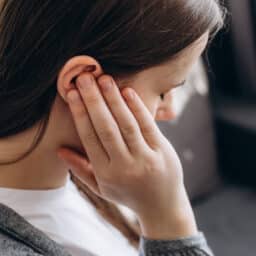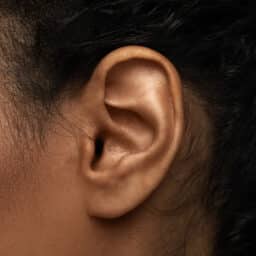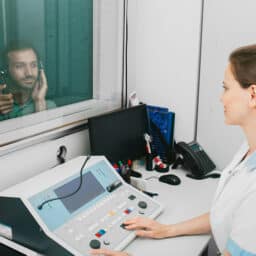How Can Ear Infections Affect Your Hearing?

Ear infections, also called otitis media, are a common condition among children, with five out of six children experiencing one by their third birthday. While ear pain is the most discussed side effect, ear infections can also affect your hearing. How Ear Infections Impact Hearing During an ear infection, fluid accumulates in the middle ear…
Love Your Ears: Essential Self-Care for Better Hearing

With Valentine’s Day approaching, love is in the air! While you may be planning something special for a loved one, don’t forget to take care of yourself, too—especially when it comes to your hearing health. Your ears work hard every day, helping you engage with the world around you, so why not show them some…
5 Surprising Facts About Your Ears and Hearing

Maintaining healthy hearing throughout life becomes easier when we understand how our ears function. This understanding empowers us to take proactive measures, such as wearing ear protection when necessary and adopting safe ear-cleaning practices, along with regular check-ups. Let’s delve into five lesser-known facts about ears and hearing. Ears Never Rest Your ears are always…
What To Know About Hearing Aid Technology in 2024

Hearing aids provide sound clarity and amplification, improving the quality of life for many; in fact, nearly 28.8 million Americans stand to benefit from using hearing aids. To provide that improvement to quality social connection, hearing aids must be consistently advancing their technologies. What’s to Expect If you’re a hearing aid user or considering hearing…
What To Know About Bone Conduction Tests

A bone conduction test is a hearing test used to indicate to a hearing specialist whether sensorineural hearing loss versus conductive hearing loss is present. The test works by presenting sounds that gently vibrate the skull to indicate where there is hearing loss present in the outer or middle ear. It is often used in…
How Are Stress and Hearing Loss Connected?

Stress can lead to various health issues long-term. Those overall health issues can also have an impact on your hearing health, making the management of chronic stress more important. How Stress Affects Hearing The inner ear is sensitive to blood flow. The inner ear hair cells that carry sound signals to the brain need healthy…
What Is Otosclerosis and How Can It Be Treated?

Otosclerosis is a condition caused by abnormal bone remodeling in the middle ear. Your ear bone tissue renews itself throughout your life, replacing old tissue with new. When the tissue grows abnormally, otosclerosis can occur. Affecting more than three million Americans, otosclerosis prevents sound from traveling through to the auditory center, leading to mild to…
Tips for Relieving Ear Pressure

Ear pressure is the uncomfortable feeling that your ears are full, stuffy or plugged. Ear pressure occurs when the Eustachian tubes, the tubes running from the middle ear to the back of the nose, become blocked. Common causes of ear pressure include but are not limited to: Less common causes of ear pressure include Ménière’s…
How to Protect Your Hearing While Cycling

Cycling, whether indoors on a stationary bike or outdoors on the road or in the mountains, can be a great way to exercise. Cycling is an ideal aerobic exercise if you have arthritis or other conditions which cause joint pain because it helps your heart without putting too much mechanical stress on your back, knees,…
What Is the Valsalva Maneuver & How Does It Relate to Your Ears?

Even if you haven’t heard the term “Valsalva maneuver,” you probably know what it is. It is a breathing technique used for several reasons: one reason is clearing your ears. What Does the Valsalva Maneuver Entail? There are only a few steps involved in the Valsalva maneuver. They are: You can maintain these steps for…